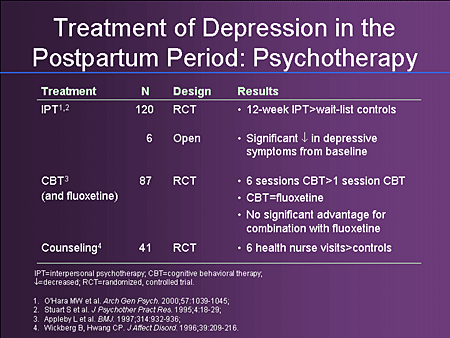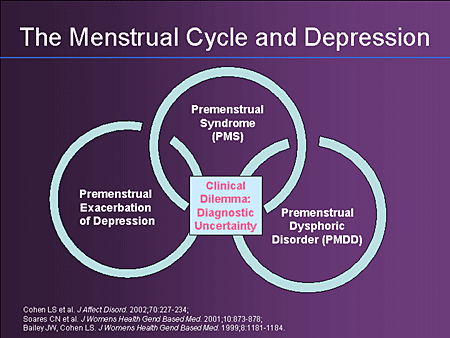
What to look for in postpartum depression? What is the best postpartum depression treatment? What causes post partum depression? Is acupuncture effective for postpartum depression?
Screening rates for PPD are low and this disorder often remains undiagnosed. Assessment, diagnosis, and the appropriate treatment are key in managing patients with PPD. The presentation can be dramatic, with onset as early as.
Prenatal and postpartum depression in fathers and its association with maternal depression. O’Connor E, Rossom RC, Henninger M, et al. Primary care screening for and treatment of depression in pregnant and postpartum women: evidence report and systematic review for the US Preventive Services Task Force.
For first episodes of depression in postpartum women, 6-months of treatment is recommended. For women with recurrent major depression following pregnancy, long-term maintenance treatment with an antidepressant is indicated. According to the DSM- a manual used to diagnose mental. All women who carry a pregnancy beyond weeks’ gestation are at risk for PPH and its sequelae. Although maternal mortality rates have declined greatly in the developed worl PPH remains a leading cause of maternal mortality elsewhere.
There are several treatment options for postpartum depression (PPD). Treatment options and availabilities depend on several factors. Determining which treatment to pursue is a decision that the mother will make with her physician and family to determine the best course of action. Support groups may be very helpful if you are experiencing PPD. They may provide useful information and ideas about how to cope better with day-to.

When a woman with severe postpartum depression becomes suicidal, she may consider killing her infant and young children, not from anger, but from a desire not to abandon them. The symptoms of postpartum depression are the same as the symptoms of depression that occurs at other times in life. Learn the basics of postpartum depression.
The impact of post‐partum depression on infants. Postpartum (puerperal) psychosis is the most serious postpartum disorder. Post‐partum depression (PPD) is a non‐psychotic depressive illness that is moderately severe in symptomatology and similar to depression at other times in life. Onset is often four to six weeks postpartum , but can occur anytime within the first year after childbirth. References for depression articles on HealthyPlace.
While some women are predisposed to experiencing postpartum depression , PPD can affect anyone, including women who experience a normal delivery and give birth to a healthy child. Since a personal history of depression can increase the risk of postpartum depression , let your doctor know if you have struggled with depression or anxiety in the past. Indee pregnancy and postpartum are associated with an increased risk for developing depressive symptoms in women. Most of the time, it occurs sometime in the first weeks after delivery.
Read about postpartum depression symptoms, treatment, and causes. Statistics indicate that PPD can affect as many as of new fathers, as well.
No comments:
Post a Comment
Note: Only a member of this blog may post a comment.